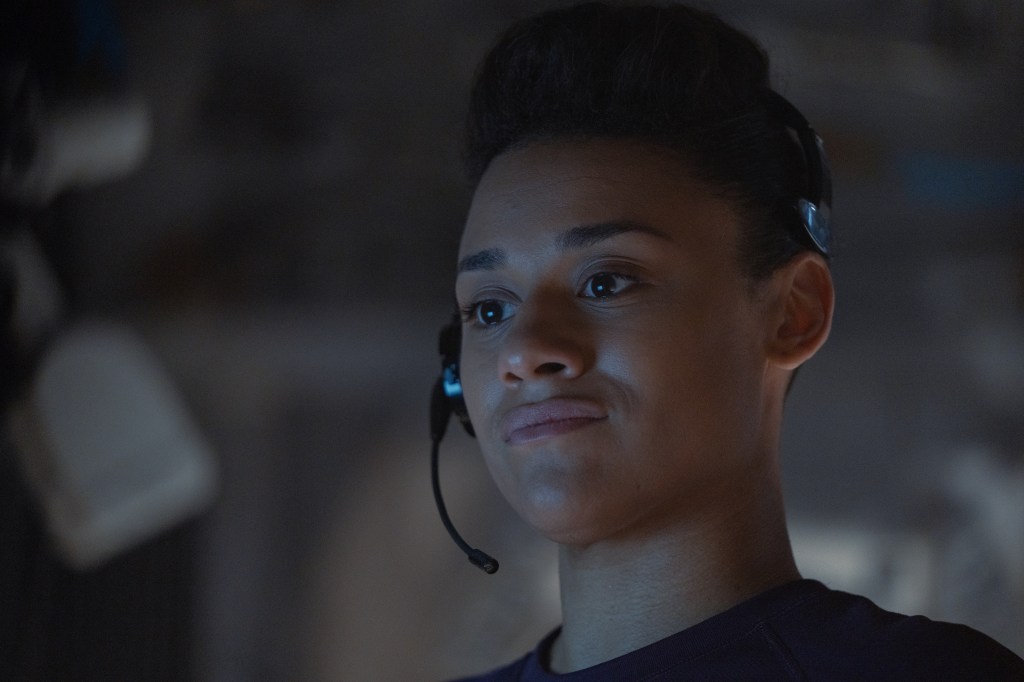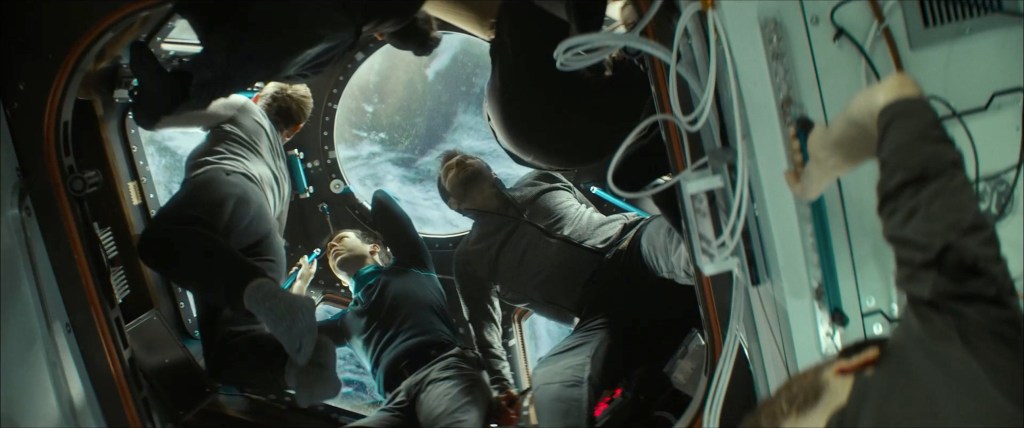Directed by Gabriela Cowperthwaite
Written by Nick Shafir
The Russian-US relations have been a fertile subject for many a film over the years. The animosity has lasted nearly 80 years since the end of World War II, so there’s plenty to draw from. It’s resulted in many good films from Cold War to Cuba to Space Race. But even with the space race subject, I don’t think I’ve ever seen a film tackle the concept that’s depicted in I.S.S., which is a credit to the filmmakers. It’s very early in the year, and I’ve only seen a handful of films so far, but I.S.S. is one of my most anticipated January films this year, along with Mean Girls. There isn’t much else there, as the cast is relatively small and unknown, featuring three Russian actors and three known, but not super famous American stars. Ariana DeBose is the biggest name, fresh off her Oscar win for West Side Story.

If you’ve not seen a trailer, or heard much about this film, as the title suggests, it takes place within the International Space Station (I.S.S.), a Russian-US collaboration that finds scientists working side by side for the greater good. When new researchers Kira (DeBose) and Christian (John Gallagher Jr.) arrive at the I.S.S., they’re warmly welcomed by the Russians (Masha Mashkova, Costa Ronin and Pilou Asbaek) and Gordon (Chris Messina), who all reiterate that on the space station, politics do no exist. But when Kira sees an explosion down on Earth, the group is taken aback, especially when explosions continue. Each side then receives ominous communications from their mother countries, informing them their countries are at war, and to take the I.S.S. “by any means necessary”.

It’s such a simple and obvious premise that it is truly shocking its never been tackled before (to my knowledge). The scenario just naturally has a lot of advantages to it: one location, small cast, enclosed space, high tension, current geo-political relevance, and pure, unadulterated humanity. The strength of the film is not that the group automatically turns and is at war with each other, it’s in the doubts. Did the other crew receive the same message? Are they going to act on it? To what end? The best moments in the film deal with the psychological aspects of the conundrum, not the cutthroat, direct physical confrontations. Those come too, and there are consequences, naturally, but it would not have been near as interesting or entertaining if it was just a straightforward action film.
A lot of burden is placed on the cast to carry the film, as there is not a ton of space to explore (pun not intended), and all six are game. Having been familiar with the American side of the cast before, I wasn’t surprised they brought it, but the Russian cast matched them in almost every way. The dynamic between the crew is so important to making this whole thing work, and there is an evident comradery, which creates the inner turmoil among each individual as to whether they still trust their counterparts or not, whether they’re really going to turn on their friends or not, whether they’re going to make it out of the situation alive or not.

For everything this film has going for it, I will say the ceiling is rather limited as well, meaning its potential to be more, to transcend the genre and become a truly great film is pretty unlikely. It would have taken a truly remarkable ensemble performance, and innovative, visionary filmmaking for it to breakthrough and be an all time great. It’s not that, but it doesn’t need to be, especially for a January film. DeBose and company do more than enough to engage the viewer and create the tension needed to entertain throughout the otherwise taut and concise thriller. Cowperthwaite is likewise very game to deliver the visuals and staging to ramp up the tension, and give the viewer the connection to characters required for us to care who lives and who doesn’t and care whether humanity itself is capable of preserving itself.

